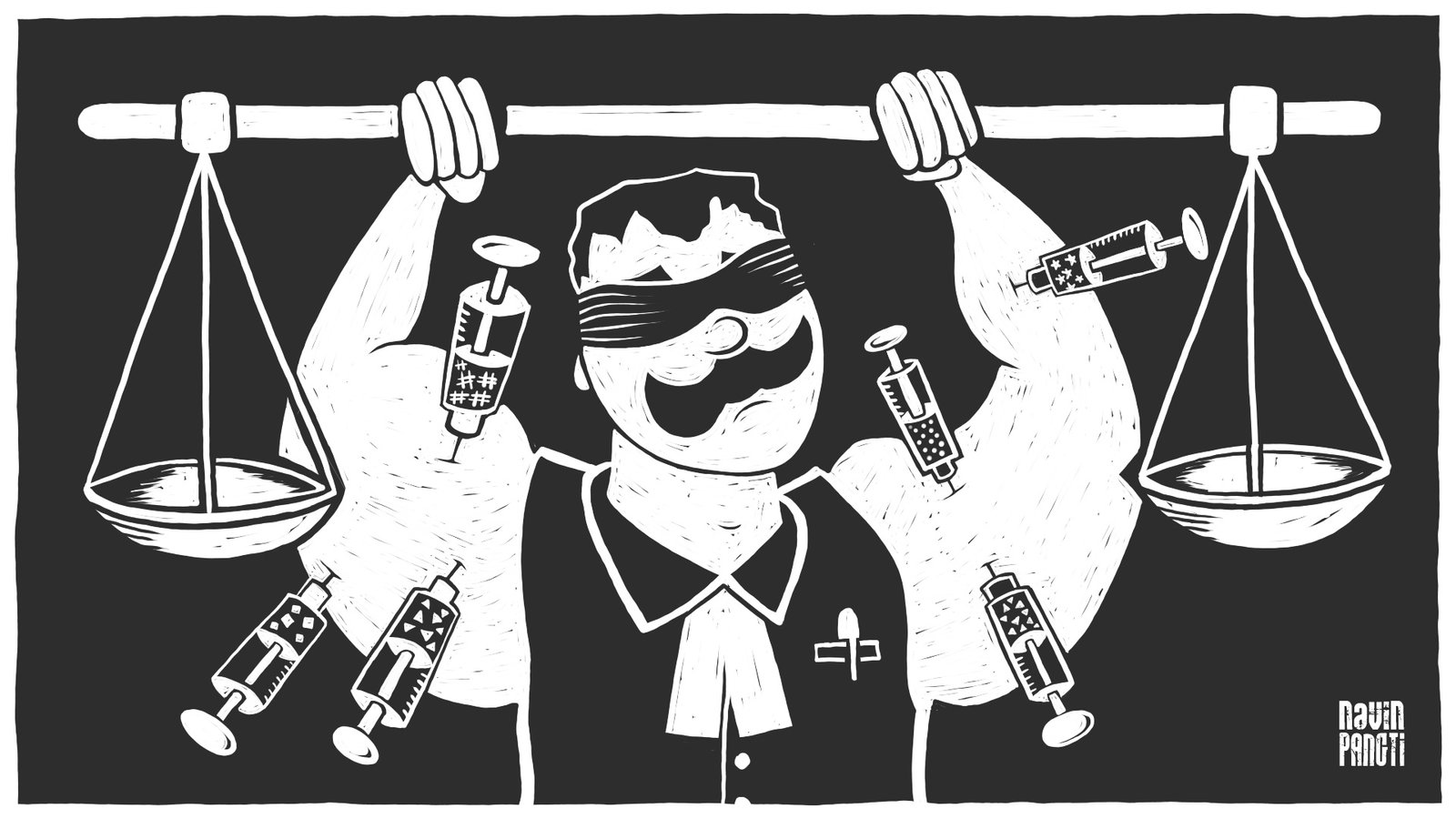The fallacy called remedial law
Every piece of law is enacted to ensure that citizens fully enjoy the benefits of belonging to a modern nation state. They ensure that constitutional promises are well kept and in an event of injustice, various legal remedies are available to the citizens, quickly and easily. If such is the premise of modern legal framework, then have you ever wondered as to why do we need remedial laws? Does the very existence of remedial laws suggest that existing legal system has failed to keep its part of the promise?
Whenever a brutal or high profile incident triggers mass uproar, the call for instant justice follows. People seek death for the perpetrators. While this deep desire for quick justice can be seen as a basic tribal instinct, it also represents the collective failure of the entire legal framework. Ordinary citizens do not seem to have much faith in the judicial system. They view it as an administrative maze where justice and sanity is sacrificed at the altar of delays, complex conversations and compromises at various levels. And they are not entirely wrong.
The uproar automatically leads to questioning the efficacy of available legal remedies and demand of tougher laws. The civil society and media joins the chorus demanding stringent remedial laws. And they collectively applaud when the wish is granted. I wish this was all so simple!
The legal process starts with the police force, which is supposed to be well-equipped and well-meaning. It is followed by the contributions from a well-functioning legal fraternity which is supposed to work in tandem with the executive to ensure justice delivery, any time and every time. Sadly, both these arms of justice system can hardly be said to be functioning well. And without them performing well, the justice system almost becomes powerless. Even the most well-meaning judge cannot deliver justice unless the police system and legal fraternity make the charge sheet objective and verifiable.
Citizens get a feeling that rule of law prevails only when these systems function well. The duty of judicial system is not only to ensure that justice prevails but also convey to the citizens that justice is being delivered. In the absence of such signals, citizens begin to believe that law has ceased to prevail.
Failure of deliver justice, including delays, lead to the demand for remedial laws. The remedial laws are special laws designed to meet the specific needs of the weaker sections of the society. Corpus Juris Secundum, defines ‘remedial statute’ as something “designed to correct an existing law, redress an existing grievance, or introduce regulations conducive to the public good.” Unlike regular penal provisions, remedial provisions are supposed to specifically address the wrongs done against select individuals or groups. They are designed to ensure social justice.
But isn’t that the premise of every law or amendment? Isn’t it the primary duty of law?
Our legal framework well encompasses most aspects of our lives and provides remedies for almost all use cases. Those not covered directly, are addressed indirectly. The mechanisms for such interpretations are built into the system. Be it about quick investigations, time bound filing of charge sheets, fast track courts, privacy of victims, safety of witnesses, or ensuring social justice, they all are part of the promises that our democracy makes to its citizens. In spite of that, if need arises to provide additional teeth and claws in the form of remedial laws to ensure stricter enforcement then there is something fundamentally wrong in the way we are performing out democratic functions. It essentially means that we have failed to keep our constitutional promises.

Whenever we enact a remedial law, we essentially fix a ‘deficiency’ in a prior law. These enactments are an acknowledgement that the existing system of law has failed to deliver. While not many would agree, I firmly believe that instead of being a solution, ‘remedial laws’ are a problem in themselves. They not only represent a myopic constitutional vision but also a narrow interpretation of the idea of justice. It would not be an exaggeration to say that the need for additional legislative input in the form of remedial laws is akin to putting the legal system on steroids because traditional remedies failed. While doing so we forget that steroids are temporarily fixes which, in the long run, becomes a part of the problem.
By their very nature, remedial laws can be quite unlawful. Providing someone with a sword for self-defense does not insure that ‘power’ will not be misused. Because remedial measures are designed for swift action, this additional power is often subject to misuse. Because the context is sensitive, most people, and even media, stay away from stating anything, forget saying something adverse. As the burden of proof tends to shift, the chances of misuse of remedial laws increases manifold.
Another problem with the remedial laws is that by its very nature they have a strict construction. Such a construction asks for a broad interpretation. Broader interpretation demands effectiveness and efficiency of all agencies involved. While liberal interpretations can help remedial laws play a meaningful role, its lazy interpretation makes the law susceptible to misuse. Strict interpretation of a strict construction weakens the very idea of justice.
Having witnessed such use and misuse personally, this for me is not a mere theoretical discussion. One of my haunting memories is of a friend who left his mainstream career to be with his aging parents as the family had to suffer the misuse of the dowry prohibition act. In another case, a drunken brawl led to invoking of the SC ST act. From what I know, the ‘victim’ was on the wrong side of the law but used the act to place himself on the right side. Instead of justice, the provisions of law were used extract revenge. In spite of the dowry prohibition act, dowry continues and in spite of the stringent provisions of SC ST Act, the social condition of people belonging to scheduled castes and tribes remains appalling. Instead of helping solve the problem, the threat to evoke the Act is making the matters worse.
The SC ST Act seems to amply prove that legal crutches cannot make a society sprint towards progress. Even after 75 years of independence and so-called progress in the society, most of the people, even those who state that they do not believe in caste system inherently nurture the notion of higher and lower castes and classes. The thriving identity politics clearly illustrates that as a society we adore hierarchies. The caste and class based atrocities are there for everyone to see. If the core legal framework failed the oppressed classes then remedial laws have failed them too.
Another example is that of crime against women, which is on the rise in spite of all the laws of land. The burden of this failure was comfortably put on the legal provisions and led to enactment of POCSO (Protection of Children Against Sexual Offences). Most political parties shield sexual offenders, openly make statements in favour of offenders, and make snide remarks about how women conduct themselves, and yet we feel that a POCSO can change everything. We, as citizens, are led to believe that injustice is due to the deficiency of law while the deficiency is inherent in the support system that propels judiciary.
Frankly speaking, remedial laws are mere lollipops handed out to suggest that everything is under control. When powerful people convicted of rape and murders are out of parole, or are let out prematurely, it becomes essential that we try to understand and diagnose the real problem. We need to realize that succumbing to stop gap arrangements like remedial laws actually hamper our very growth as a just society.
Look around and it is pretty evident that those denied justice under the regular course of law are often denied justice even with these special courses of law. No matter what we say or believe in, justice is after all a matter of privilege. It comes at a cost and not everyone can bear it. As one climbs up the ladder of appeals, justice becomes more inaccessible. Merely standing in the lawns of the High Courts or Supreme Court is a privilege unavailable to the masses. For the poor and illiterate, even the district court is a fearsome mammoth. Instead of the provisions of law, justice for the poor is defined by the whims and fancies of the government attorney.
Expecting a poor person to knock the doors of courts is in itself a very privileged notion of justice. Ideally, justice should reach the people rather than people knocking the doors of law for justice. Even the constitution states that. But we always quote it the other way round.
Lack of time and resources, coupled with fear of courts often forces the poor and underprivileged to back out from seeking a legal remedy. The unnatural delay in deliverance of justice and the complexity of the legal process forces the underprivileged to accept a legal wrong as their destiny. It would not be an exaggeration to state that apart from being a privilege, the legal system also functions as a tool leveraged to ensure continuance of a privilege. This fact stands proven without doubt as charge-sheeted folks and history sheeters openly enjoy and exert legislative powers, while the legal framework functions as per their sweet will. In such a scenario, the need is to overhaul the entire framework instead of applying remedial bandages which seemingly suggest that things have been brought under control though nothing really changed.
Technically, jurisprudence states that no ‘other’ law should exist. If a law fails to perform optimally, it should be subjected to amendments to overcome the shortcomings. If a law is entirely inadequate then new laws should be framed to replace the old. The judicial interpretations of these laws should enhance the constitutional context of these statutes. Our legal framework is a continuum rather than being a static framework. It is a fairly robust system with inbuilt checks and balances. But if the need to enact remedial statutes still exists then it is an unsettling proposition. It clearly suggests that we collectively, including the judiciary, are unwilling to see the elephant in the room!














Could it be that only Divine jurisprudence holds water in this great spiritual land of Ours … 🙂
i doubt that. no evidence!